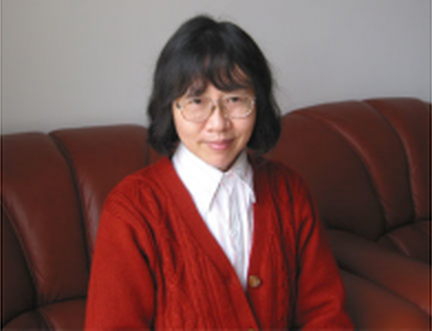More articles Thursday 18 August 2016 11:00am
Can Xue – Titan of Avant Garde Chinese Writing

Can Xue’s writings were first translated in the UK in 1989. Yet it has taken until now for this titan of avant-garde Chinese writing to make an appearance in Britain. Susan Sontag once said of Xue, now in her sixties and still writing furiously every day, that “If China has one possibility of a Nobel laureate it is Can Xue”. Robert Coover has called her a “world master”. Her inaugural Book Festival event felt like a particularly special occasion. “I have rarely talked about the core of my writing principles to western readers,” she said with a chuckle via her translator.
Increasingly, Xue, whose name is a pseudonym and means both “the purest snow at the top of the mountain” and “the snow made dirty by boots in spring”, began to speak in English while discussing her experimental craft. She name checked writers who have influenced her, including Kafka, Borges, Calvino and Shakespeare, who she reads in Chinese and English “and then I compare them". She writes every single day for one hour - “even festivals!” - scribbling continuously by hand after thinking “for about two minutes”. Xue, whose family of intellectuals endured brutal hardship during the Cultural Revolution, was only able to start writing when she was thirty. Before that, she worked as a tailor.
She spoke of the dual tension inherent in all her writing, from her first short stories in the Eighties to her novels and non-fiction works on philosophy. “My writings are based on western classical literature and philosophy,” she explained. “But the essence of the work is Chinese.” Her Chinese readers apparently find this fusion more strange and unfathomable than her Western readers. “You can never see the back of your own hat,” she explained with another giggle. Even in translation, Xue came across as subversive and mischievous, with a brilliant sense of humour.
Chair Daniel Medin, an editor and professor at the American University of Paris, read an extract from her latest novel to be translated into English, The Last Lover, which was longlisted for the 2015 Independent Foreign Fiction Prize. Suffice to say, it featured a page-long book that turned into a snowy mountain. And a character who proceeded to have sex with it. The mountain, that is. It was deeply weird, provocative, and sexual. Xue then read the same section in Chinese, slowly, deliberately, with only the shadow of a smile.
“The biggest problem is not gender, but the cultural clash,” Xue answered when Medin asked her how her writing is received in China. “I place my hope in the younger generation of Chinese readers.” She added that one of China’s most famous critics, a university professor, claims to be completely baffled by her work. “But his son loves it,” she said with a laugh. “He is 13.”
- 2026 Festival:
- 15-30 August
Latest News
 60 new events now available on demand
60 new events now available on demand



